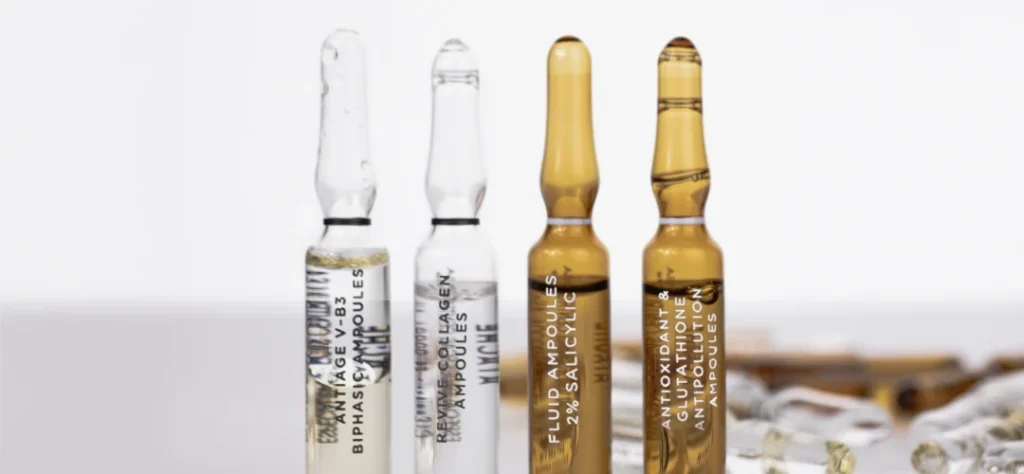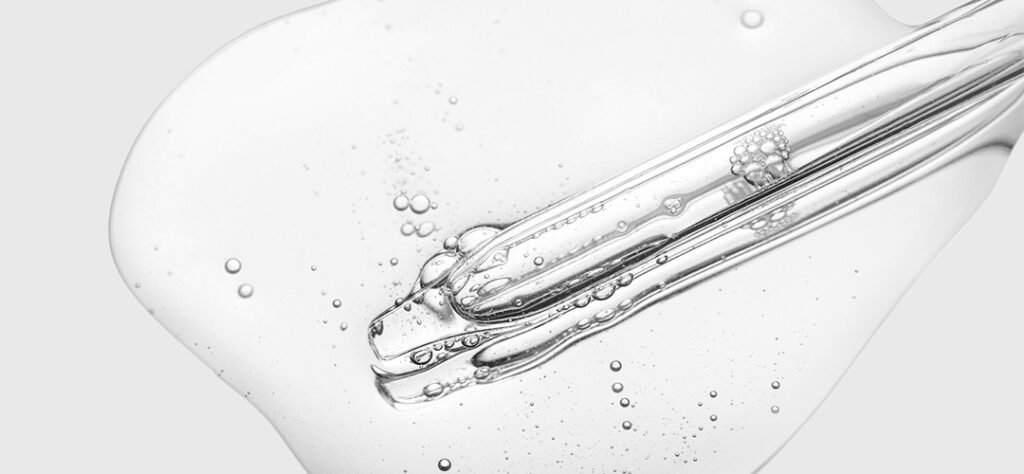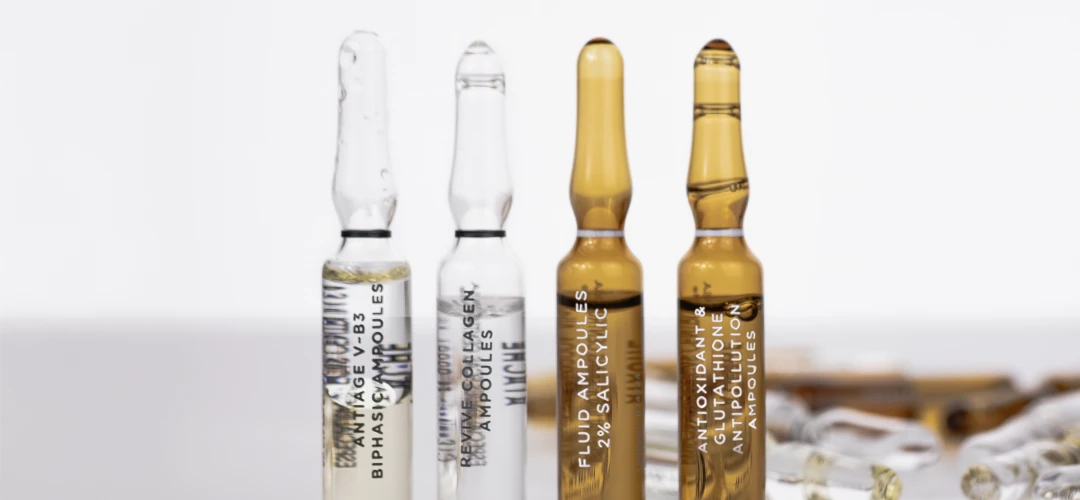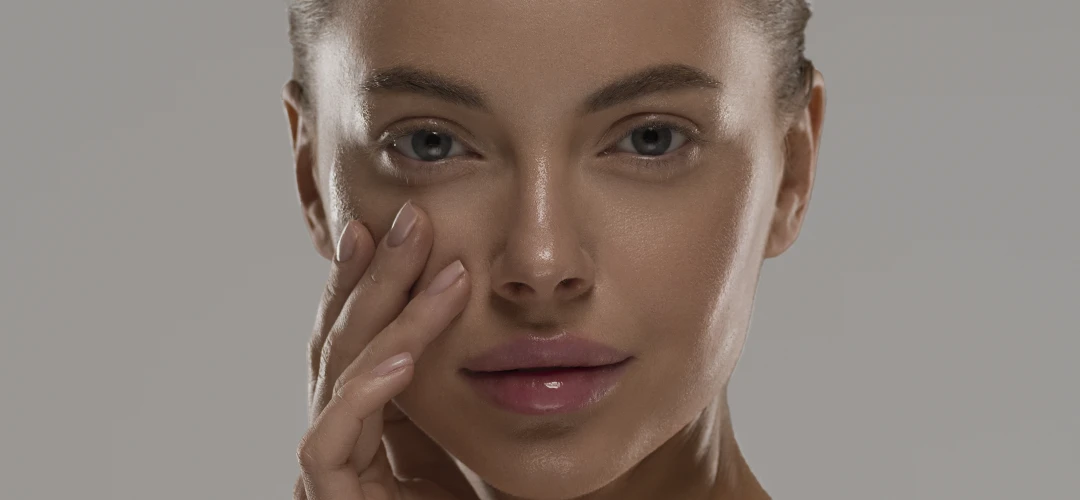Your skin requires constant hydration to maintain its protective barrier function and achieve a healthy appearance. Dehydrated skin can manifest in several ways: tightness, flaking, more pronounced fine lines and a dull complexion. But what does rehydrating the skin actually mean, and how can we achieve it?
What is skin hydration?
Skin hydration is the process of delivering water to skin cells, restoring their balance and improving their function. Well-hydrated skin is softer, suppler and better equipped to resist external aggressions.
Our skin is covered by a protective layer—the skin barrier—primarily composed of lipids. This barrier helps prevent water loss and protects the skin from external elements. When it becomes damaged, the skin dehydrates more easily.
What causes skin dehydration?
Skin dehydration is a common concern that affects people of all ages and skin types. It’s rarely the result of a single cause. Instead, it arises from a combination of internal and external factors that compromise the skin’s ability to retain essential moisture. Key factors include:
- Environmental factors: The environment plays a crucial role in skin health. Prolonged sun exposure without adequate protection not only causes burns but also damages the skin barrier that keeps moisture trapped inside. Additionally, elements like strong winds, extreme cold and air pollution weaken the skin’s protective layer, encouraging water loss. These factors particularly affect those who spend a lot of time outdoors without taking proper precautions, such as using moisturisers and sunscreens.
- Unhealthy lifestyle habits: Lifestyle choices directly impact skin hydration. Not drinking enough water makes it harder for the body to maintain hydration, often resulting in dry, dull-looking skin. Excessive smoking and alcohol consumption also worsen dehydration by impairing circulation and damaging collagen and elastin fibres. Moreover, insufficient sleep hinders the skin’s overnight regeneration process, increasing the likelihood of dryness.
- Inappropriate products: Facial care should be carefully tailored to your skin’s specific needs. Using harsh cleansers, over-exfoliating or applying products with high alcohol content can strip the skin of its natural oils, leaving the skin barrier exposed and prone to dehydration. Choosing gentle products that have been specially formulated to moisturise and protect the skin is essential.
- Climate conditions: Dry climates and extreme cold naturally deplete the skin of moisture. In such conditions, reduced humidity causes water to evaporate from the skin more quickly. This effect is amplified indoors, where heating or air conditioning dries out the air further, negatively impacting skin hydration.
- Ageing: As we age, our skin gradually loses its ability to retain moisture. This occurs due to a decline in the production of essential lipids and hyaluronic acid—key components for maintaining hydration. As a result, older individuals often experience drier, more sensitive skin.
Key ingredients for hydrating the skin
What can you do if your skin is already dry or lacking hydration? The solution lies in the active ingredients you choose. Knowing which ingredients are most effective for maintaining hydration and strengthening the skin barrier is crucial for improving overall skin health.
Hyaluronic acid
Hyaluronic acid is a cornerstone of skin hydration, and for good reason. Naturally present in our skin, this compound acts as a magnet for water, attracting and retaining moisture in the deeper layers of the skin. It can hold up to 1,000 times its weight in water, making it an incredibly effective hydrator for all skin types. Products with hyaluronic acid help plump the skin, leaving it smoother, firmer and healthier-looking.
Ceramides
Ceramides are essential lipids that form a critical part of the skin’s natural barrier. They bond skin cells together, creating a protective layer that prevents water loss. Strengthening this barrier is vital for retaining moisture and protecting the skin.
Niacinamide
Niacinamide, also known as vitamin B3, is a multifunctional ingredient suitable for all skin types offering numerous benefits, including the ability to enhance skin hydration. This versatile ingredient stimulates the production of natural ceramides in the skin, helping to fortify the skin’s barrier.
Panthenol
Panthenol, or provitamin B5, is a hydrating and soothing active ingredient, helping not only to lock in moisture but also promote skin regeneration.
How do you rehydrate your skin?
Gentle cleansing
The first step in any skincare routine is effective, gentle cleansing. Using mild cleansers is essential, as harsh ingredients can strip the skin of its natural oils, worsening dehydration. Opt for lukewarm water instead of hot water during cleansing, as hot water can strip the skin’s lipid barrier, leaving it more vulnerable. Sensitive Cleanser is the perfect facial cleansing gel to kick off a hydrating skincare routine. Specially formulated for sensitive skin, it respects and protects even the most delicate complexions.
A gentle cleansing routine ensures your skin is free from impurities and prepared to absorb subsequent hydrating treatments without disrupting its natural balance.
Consistent hydration:
Hydration is essential for restoring and maintaining healthy skin. Incorporating hydrating products into your daily routine can make a significant difference:
Hydrating toners: These products balance the skin’s pH after cleansing and prepare it to absorb the active ingredients in subsequent treatments. It’s essential to choose alcohol-free toners to avoid further drying out the skin. Aqua Defense by Soft Derm is enriched with panthenol, making it the ideal toner for skin that requires extra care.
- Hydrating masks: Once or twice a week, apply masks specifically designed to provide an extra hydration boost. Masks are particularly beneficial when the skin needs additional care, such as after prolonged sun exposure or during extreme weather conditions. The Green Tea Mask, with green tea extract, delivers toning, stimulating, antioxidant and softening benefits, while soy proteins help regulate the skin’s hydration levels, preventing water loss.
- Hydrating serums: Serums, with their high concentration of active ingredients like hyaluronic acid, penetrate deep into the skin, delivering intense and long-lasting hydration. The Sublime Lift Night serum, featuring high and low molecular weight hyaluronic acid, provides superficial hydration and a deep face-plumping effect.
- Moisturisers: Choosing the right moisturiser for your skin type is essential. Moisturisers create a barrier that locks in moisture and protects against environmental factors. For best results, apply moisturiser in the morning and at night. Advance Repair, formulated with baicalin and soy glycopeptides, targets skin ageing from multiple angles with cellular-level action and a focus on skin regeneration.
Sunscreen
The sun is one of the biggest threats to hydrated skin. UV rays not only damage the skin barrier but also accelerate water loss and premature ageing. To protect your skin, use a broad-spectrum sunscreen with at least SPF 30 every day, even in winter or on cloudy days. Reapply sunscreen every two hours when outdoors to maintain protection. Be Sun Light Emulsion SPF 50+ combines effective sun protection with the hydrating benefits of hyaluronic acid, ensuring your skin stays moisturised while being shielded from sun damage.
Remember, keeping your skin hydrated is an ongoing process. With a tailored skincare routine and healthy habits, such as staying hydrated from within, you can achieve radiant, soft and healthy skin every day. Taking time to care for your skin is an act of self-care that has a lasting impact on your confidence and well-being. Your skin deserves the best.

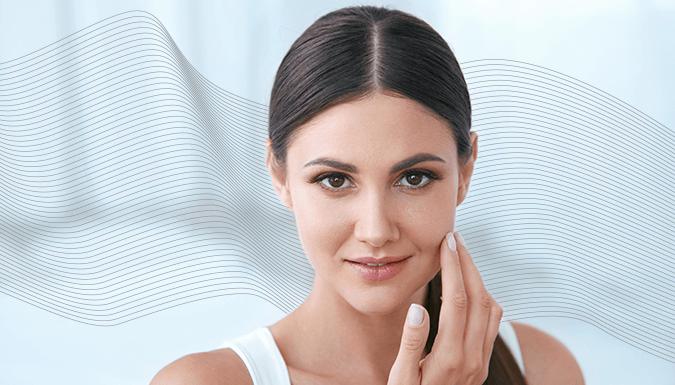




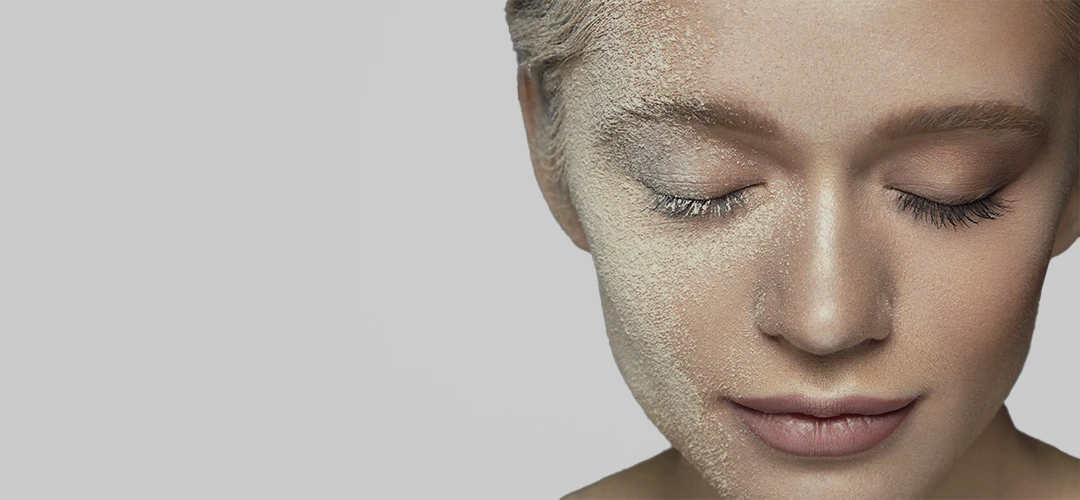
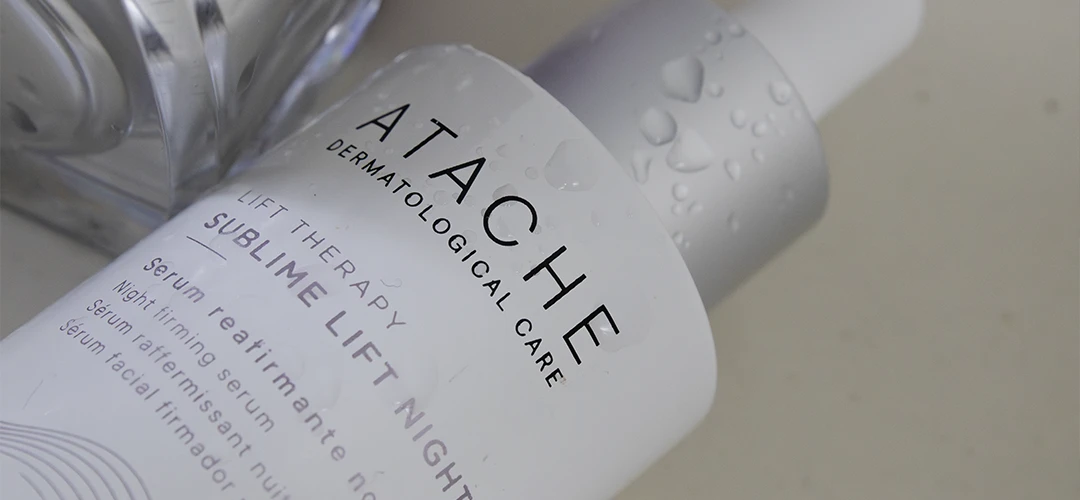
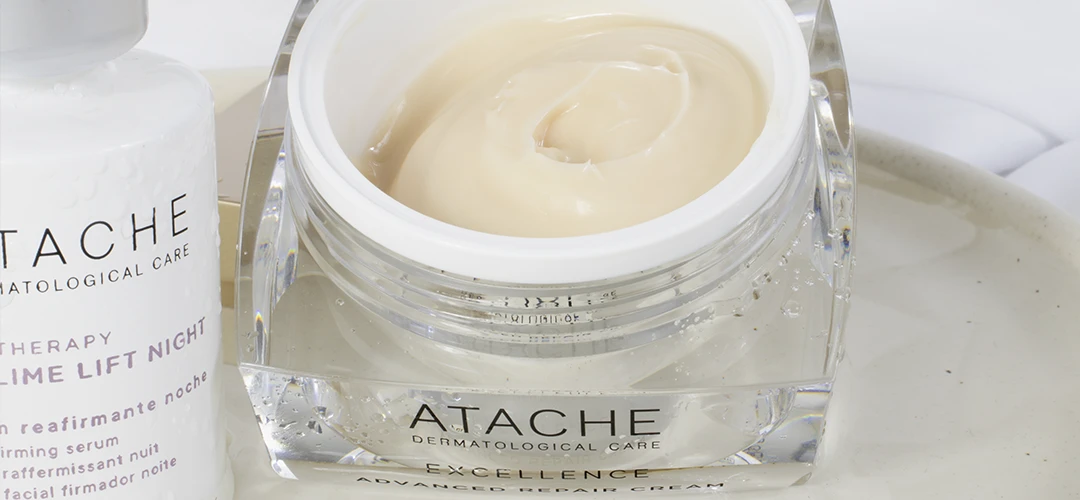 Hydrating toners:
Hydrating toners: